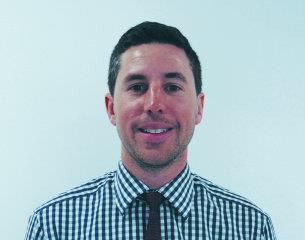
As the UK’s largest employer of social workers, Cafcass has recognised the pressures its employees are under. The organisation, which works to represent the interests of children involved in family proceedings, has put staff wellbeing at the heart of its business strategy. One of its primary organisational objectives is to support the wellbeing of its workforce, their resilience and their ability to deal with operational challenges.
Daryl Maitland, HR manager at Cafcass, says: “We had changes to the legal aid system last year, which means a good number of parties no longer qualify for legal aid now that the intention is to direct more of those cases out of court, which it may well do in the long term, but in the short term, it hasn’t.
“What you have then is parties bringing cases into family courts without representation and solicitors. What that means for our social workers is the demand on them is much greater because they’re working with people who are completely uncontained, have completely unrealistic expectations, and they are the only professionals involved now. So the family involved can’t phone their solicitor and vent a little; instead, it will be a phone call to our staff.”
Charlotte Brett, senior HR project manager at Cafcass, adds: ”It’s about doing more for less. All these changes that we’re having to adapt to, we’re doing with a decreasing budget, which is obviously creating challenges in itself.”
Focus on improving employee health and wellbeing
Over the last six years, Cafcass has invested a lot in improving staff health and wellbeing. Back in 2008, its absence levels had reached 16.2 days a year per employee. Also, about 9,000 working days were lost to stress, of which 80-90% were due to work-related issues.
To tackle these issues and improve employees’ overall health, wellbeing and resilience, Cafcass introduced a proactive strategy that includes day one sickness intervention, an employer-funded health cash plan, an employee assistance programme, including six face-to-face cognitive behavioural therapy (CBT) sessions a year for each employee, and regular staff resilience workshops.
By the end of last year, the number of days lost to stress had fallen to 2,000 a year, and sickness absence levels to 7.1 days a year per employee.
In addition, last year Cafcass’ 1,800 employees made 2,500 claims through its health cash plan, which has achieved take-up of more than 98%.
Cafcass’s health and wellbeing strategy was deemed to have been such a success that, in June 2014, the organisation was awarded the title ’Best healthcare and wellbeing benefits – large employer’ at the Employee Benefits Awards 2014.
Total employee value proposition
“These results are due, in a big part, not just to the benefits package we’ve created in the traditional sense, but the culture and environment,” says Maitland. “People feel safe, they feel happy coming to work and they feel they will be treated with dignity and respect.
“Also, social workers are fixers: they want to help people. Our statutory remit as an organisation is quite contained. From 2010, with the budget going down but an increased demand for services, we really had to be quite firm with people and say ‘we know you’re trying to help and do more and more, but you really need to stop doing all this work on the cases; our statutory remit is this, and this is all you need to do’.
“I think helping people to understand that that is okay and they aren’t a bad person for doing their bit helps their wellbeing and ability to deal with the emotional demand of the sometimes life-and-death cases they work on.”
This holistic approach and consideration of the bigger picture reflects Cafcass’s philosophy on employee reward and engagement. Rather than simply focusing on pay and benefits, it prefers to look at the total employment proposition.
Differentiating on pay and benefits
“To some degree, that strategy has come out of necessity,” says Maitland. “Although we’ve seen a big increase in demand for our work since Baby Peter, the budget has been going the other way, so to try to differentiate on pay and benefits is not going to work.
“Regardless of the financial climate we’re operating in, I don’t think it’s right for an organisation like us to try to differentiate on salary and benefits. Social work is a tight labour market. If you start trying to differentiate on salary, it becomes an arms race, where we put our salary up a little then the local authority down the road does the same, so we go a bit higher, it goes a bit higher, and eventually we get to the stage where one of us potentially puts our organisation into financial difficulties.
“So our strategy is to try to differentiate ourselves on other things. That’s not to say we underpay, because we still pay upper quartile in terms of salary, but we don’t just want people to think about the salary. We want them to think about how they feel about working. Is it a nice environment, do they have the flexibility to work remotely, achieve a work-life balance and all those sorts of things?”
Introducing a second pension scheme
Going forward, Cafcass’s aim to support employee health and wellbeing is driving a number of new initiatives. Not least is its introduction of the National Employment Savings Trust (Nest) early next year to complement the Local Government Pension Scheme (LGPS) offered to all its staff under auto-enrolment.
“We did have some people who opted out and we suspect that is partly due to the contribution rates for that pension scheme,” says Brett. “We’re looking at offering an alternative, being mindful of the fact that if they can’t afford the LGPS, then not to offer them an alternative is like discounting their future beyond the end of their working life. We want to help them prepare for retirement and therefore need to offer a scheme that is more affordable.”
Although Cafcass is still finalising the contribution levels it will use for Nest, these will be lower than the 5.5% to 12.5% range that are mandatory under the LGPS.
“When we looked at auto-enrolment, we had around 300 people who were not in the pension scheme and when we looked at the breakdown of demographic, 80% of them were our lower earners on £24,000 a year downwards, so that said to us that there is an issue about affordability here,” says Maitland. “That’s why we want to introduce a second pension scheme, not as mandatory because we want people to have the choice, but to say that if affordability is an issue, here’s a second option where [staff] can put slightly less away.”
With a number of other planned benefits changes in the pipeline, Cafcass shows no desire to slow down in its aim of providing a total employment proposition that truly makes it stand out from the crowd.
- Daryl Maitland will speak on Health and wellbeing benefits for an ageing workforce at Employee Benefits Live on 24 September 2014.
Cafcass at a glance
Cafcass, the Children and Family Court Advisory and Support Service, was formed in April 2001 from more than 100 previously decentralised organisations. It is a non-departmental public body, which is independent of the courts, social services, education and health authorities, and all similar agencies.
Its statutory role is to safeguard children in family court proceedings, either in matters of public law where the child has been removed from their home environment or in private family proceedings.
It employs 1,800 staff, split between social work roles and business support roles. Its gender make-up is 80% female and 20% male.
Career histories

Daryl Maitland joined Cafcass in 2008, initially in a temporary position. Eight months later, he moved into an entry-level HR role. Since then, he has held various posts within the organisation’s HR department, in both transactional and operational roles.
He is currently HR manager, managing the team responsible for employee reward, benefits, engagement and wellbeing.
Maitland says HR holds a key position within Cafcass’s structure. “If you speak to our CEO [chief executive officer], he will describe HR staff as frontline staff because we are well integrated and we understand the business,” he says.
Before joining Cafcass, Maitland held a graduate role at retailer Aldi.

Charlotte Brett, senior HR project manager, joined Cafcass in 2004 as HR assistant in a regional HR team (under Cafcass’s HR structure at the time). When this model changed in 2008, she became a co-ordinator for the north of England in one of its three transactional teams.
Brett took one of her first steps into reward and benefits in 2011, when she became an HR officer, with responsibility for pensions and payroll. She moved to her current position in March 2014.
During her time at Cafcass, Brett is particularly proud of the work she has done around pensions auto-enrolment. “It was quite a complex piece of work involving partnership working and ensuring that auto-enrolment was understood by the workforce and that we implemented in line with legislation,” she says.
Business objectives impacting benefits
- To continue to improve the quality of practice.
- To support the wellbeing of the workforce, their resilience and their ability to deal with the operational challenges.
The benefits
Defined benefit career average revalued earnings (Care) Local Government Pension Scheme available for all staff and used for auto-enrolment purposes. Employer contributions of 15.8%. Employee contributions range from 5.5% to 12.5%, depending on earnings.
Health cash plan available to all staff.
Dental and eye care available through health cash plan.
Employee assistance programme including cognitive behavioural therapy.
Bikes for work scheme available via salary sacrifice.
Holiday
28 days a year plus bank holidays as standard.
Rises to 33 days after five years’ service.
Employee discounts scheme.
Tastecard and Gourmet Society membership.
Discounted gym membership.
Other benefits
Paid membership of the College of Social Work for social workers.
Fees paid to Health and Care Professions Council (HCPC) for social workers.
















